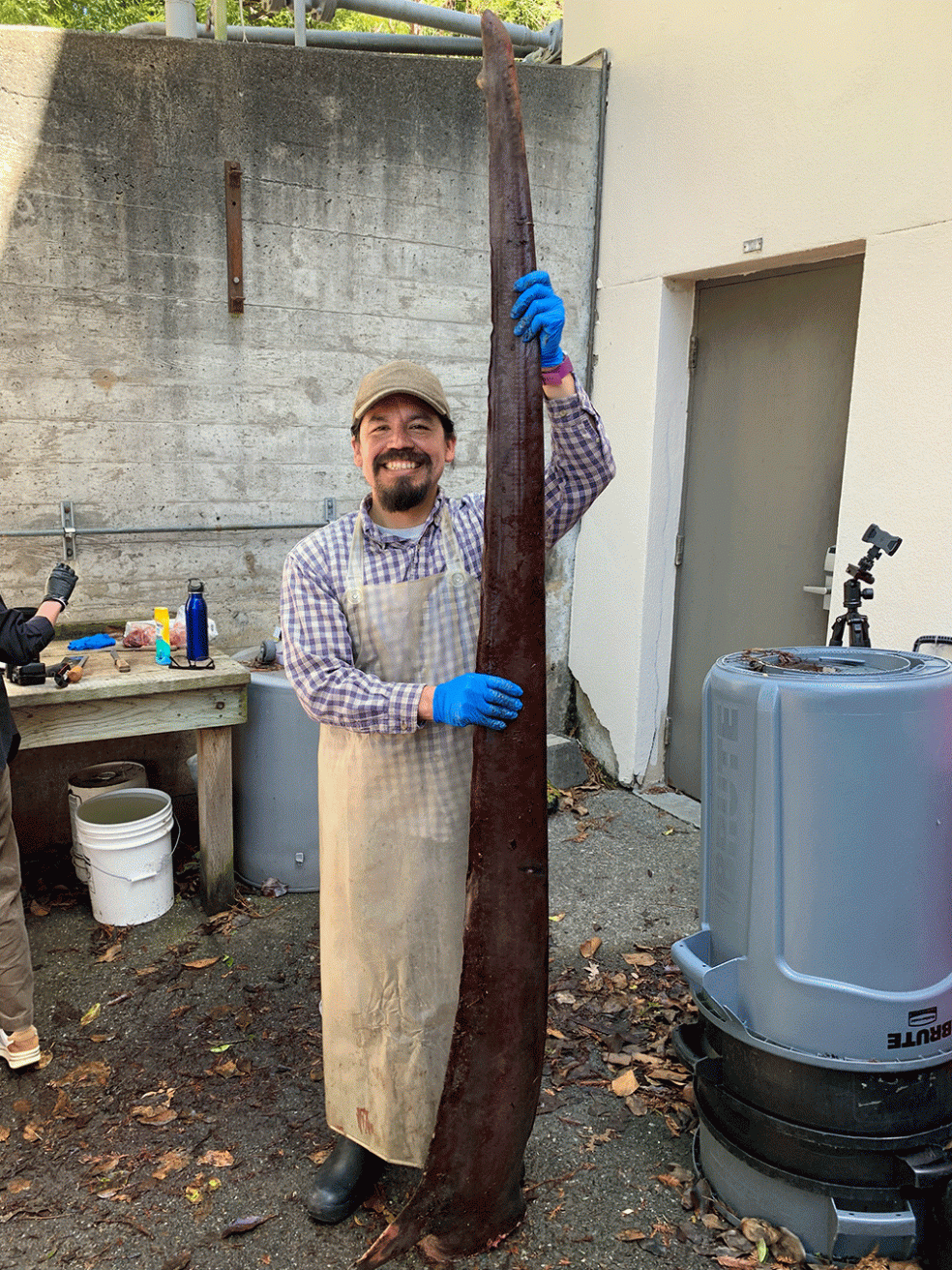
Jose Marin Jarrin, Fisheries Biology professor, was recently awarded $1.1 million from the UC Climate Action Fund for the project. The project will develop capacity and build valuable knowledge about species—such as green sturgeon, night and surf smelt, and bull kelp—which despite their ecological, commercial, and cultural importance have historically been overlooked due to lack of funding and the area’s isolated nature.
Researchers will focus on species in habitats designated as priorities by local Tribes, based on the species’ cultural, ecological, and/or economic importance.
The species inhabit oceanic coasts, estuaries, and bays in Humboldt and Del Norte counties. Data will be collected and analyzed to better understand topics that include population metrics (age, growth), how species use their habitats, urchin predation on kelp, and harvest impact on mussel beds.
For coastal California Native American Tribes, certain marine species are a vital part of their cultural heritage and family traditions, and central to their food security. Climate change threatens California’s marine resources through sea level rise, ocean acidification, extreme weather events, ocean warming, and other effects.
Development of fisheries research and monitoring capability will provide crucial information on fish species and communities, which will lead to better-informed management of Tribal and state natural resources in the face of climate change.
Staff and interns from the Wiyot Tribe, Blue Lake Rancheria, Cher-Ae Heights Indian Community of the Trinidad Rancheria, Resighini Rancheria, and Tolowa Dee-ni’ Nation, funded by this project. The partners will conduct specific research and monitoring projects on their lands, with the support of Cal Poly Humboldt graduate students, who will conduct their own specific project.
“This project is powerful because it's centered around the Tribes, they decide what to study and where, and how to spend the funds, while university and U.S. government staff provide support,” says Marin Jarrin. The knowledge gained will be shared among the partners, science community, and general public following data-sharing agreements.
Besides Cal Poly Humboldt, staff from the California Department of Fish and Wildlife, California Sea Grant, and the National Oceanic and Atmospheric Administration Southwest Fisheries Science Center will provide guidance.